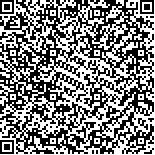| 引用本文: | 张泽萍, 胡 欢, 左国营.23种中草药的体外抗菌活性筛选研究[J].广西植物,2019,39(4):499-510.[点击复制] |
| ZHANG Zeping, HU Huan, ZUO Guoying.Screening of antimicrobial activity of 23 Chinese herbal medicines in vitro[J].Guihaia,2019,39(4):499-510.[点击复制] |
|
| |
|
|
| 本文已被:浏览 8694次 下载 4412次 |

码上扫一扫! |
|
|
| 23种中草药的体外抗菌活性筛选研究 |
|
张泽萍1,2, 胡 欢2,3, 左国营2*
|
|
1. 贵州医科大学 药学院, 贵阳550004;2. 成都军区昆明总医院, 昆明650032;3. 昆明医科大学 成都军区昆明总医院临床学院, 昆明 650500
|
|
| 摘要: |
| 为考察中草药抗菌物质基础筛选出活性提取物,该研究通过80%乙醇冷浸和95%乙醇回流提取制备23种中草药的提取物,采用琼脂扩散法测量抑菌圈直径,用微量液体培养基倍比稀释法测定最低抑菌浓度(minimum inhibitory concentration,MIC)和最低杀菌浓度(minimum bactericidal/fungicidal concentration,MBC/MFC),并测定了提取物对临床4种常见病原菌体外抗菌活性。结果表明:紫珠草、千斤拔、黄龙尾等9种中草药对金黄色葡萄球菌有较强的抑菌活性,其MIC/MBC值除个别菌是12.5 mg·mL-1外,其他都在0.09~3.12 mg·mL-1之间; 千斤拔、大红袍、过江龙等5种中草药对铜绿假单胞菌有较强抑菌活性,其MIC/MBC值在3.12~12.5 mg·mL-1之间; 紫珠草、千里光、石楠等13种中草药对大肠埃希菌有较强的抑菌活性,其MIC/MBC值在0.09~6.25 mg·mL-1之间; 八角对白色念珠菌有较强抑菌活性,其MIC/MFC值在0.78~12.5 mg·mL-1之间。23种中草药的抗细菌活性较好,尤其是千斤拔、大红袍、过江龙、八角、黄药子对金黄色葡萄球菌、大肠埃希菌、铜绿假单胞菌都具有较好的抑菌活性,具有广谱抗菌活性; 但对真菌抑菌效果不明显,仅有八角对白色念珠菌有抑菌活性。此外,提取溶剂浓度、提取温度和提取时间对中草药的提取率和活性均有影响,冷提稍优于热提。 |
| 关键词: 中草药, 金黄色葡萄球菌, 铜绿假单胞菌, 大肠埃希菌, 白色念珠菌, 体外抗菌 |
| DOI:10.11931/guihaia.gxzw201803013 |
| 分类号:Q946, R285 |
| 文章编号:1000-3142(2019)04-0499-12 |
| 基金项目:国家自然科学基金(NSFC 81173504)[Supported by the National Natural Science Foundation of China(NSFC 811735040)]。 |
|
| Screening of antimicrobial activity of 23 Chinese herbal medicines in vitro |
|
ZHANG Zeping1,2, HU Huan2,3, ZUO Guoying2*
|
|
1. College of Pharmacy, Guizhou Medical University, Guiyang 550004, China;2. Kunming General Hospital of Chengdu
Military Command, Kunming 650032, China;3. Kunming Medical University-Kunming General Hospital of
Chengdu Military Command of Clinical College, Kunming 650500, China
|
| Abstract: |
| In order to investigate the antimicrobial material base of Chinese herbal medicine and screen the active extracts, 80% ethanol cold soaking and 95% ethanol reflux extraction were used to prepare the extracts from 23 traditional Chinese herbs. The agar diffusion method was used to measure the inhibition zone diameters(IZDs), the minimum inhibitory concentration(MIC)and minimum bactericidal / fungicidal concentration(MBC/MFC)were measured by the microdilution method to determine the in vitro antimicrobial activity of the extracts against four common clinical pathogenic microoranisms. The results showed that some of the 23 ethanol extracts had strong inhibitory effects, among which nine species like Callicarpa macrophylla, Flemingia philippinensis and Agrimonia pilosa extracts showed stronger inhibition against Staphylococcus aureus. The ranges of MICs/MBCs were between 0.09 and 3.12 mg·mL-1, except for a small number of strains with the MIC/MBC at 12.5 mg·mL-1. The extracts from five species like Flemingia philippinensis, Campylotropis hirtella, and Entada phyaseoloides showed stronger inhibition against Pseudomonas aeruginosa, the ranges of MICs/MBCs were between 3.12 and 12.5 mg·mL-1. The extracts from thirteen species like Callicarpa macrophylla, Senecio scandens and Piper wallichii showed stronger inhibition against Escherichia coli, the ranges of MICs/MBCs were between 0.09 and 6.25 mg·mL-1. The extracts from Illicium verum showed stronger inhibition against Candida albicans, the ranges of MICs/MFCs were between 0.78 and 12.5 mg·mL-1. Generally, the ethanol extracts from 23 traditional Chinese herbs showed good antibacterial activities, especially Flemingia philippinensis, Campylotropis hirtella, Entada phaseoloides, Illicium verum and Dioscorea bulbifera showed a broad spectrum of antibacterial activities against Staphylococus aureus, Pseudomonas aeruginosa and Escherichia coli. Their fungicidal effect was weak, only Illicium verum showed inhibitory effect on Candida albicans. In addition, extraction temperature, time and solvent concentration affected the extraction rate and the activity of extracted drugs, with hot extraction slightly better than cold extraction. |
| Key words: traditional Chinese herbal medicine, Staphylococcus aureus, Escherichia coli, Pseudomonas aeruginosa, Candida albicans, in vitro antimicrobial |
|
|
|
|
|



